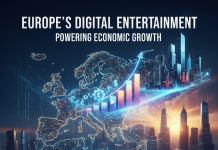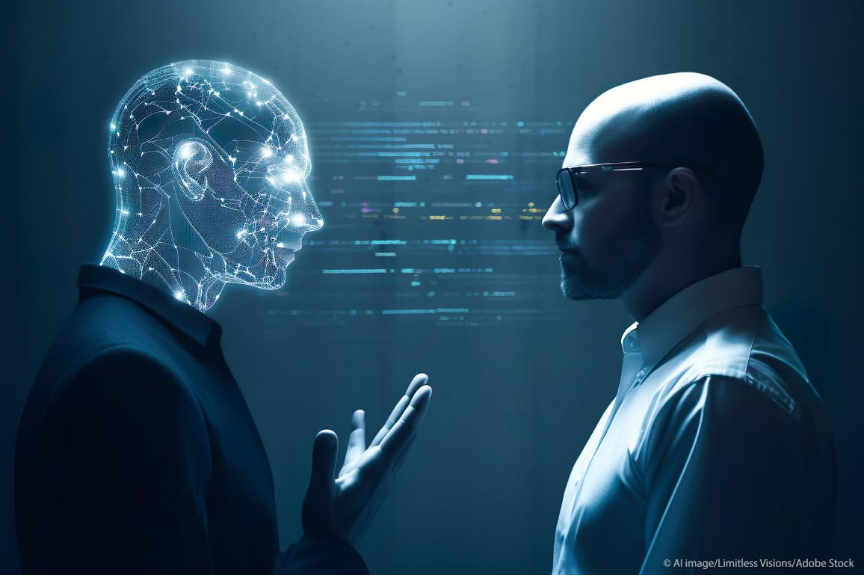 The modern landscape of business demands more than just clever tactics—it requires world-class insight from marketing speakers who have navigated the shift from analogue to digital. With decades of experience across brands and geographies, one keynote figure stands out for his ability to help audiences anticipate change and harness it for growth.
The modern landscape of business demands more than just clever tactics—it requires world-class insight from marketing speakers who have navigated the shift from analogue to digital. With decades of experience across brands and geographies, one keynote figure stands out for his ability to help audiences anticipate change and harness it for growth.
That expert is Allister Frost, the former Head of Digital Marketing Strategy at Microsoft and founder of Wild Orange Media. He has worked with global organisations, led major brand transformations and built a reputation as a go-to voice on preparing teams for what comes next.
In this exclusive interview with The AI Speakers Agency, Allister explores how marketing speakers must evolve in today’s dynamic environment—how to stay agile, inspire change and be ready for whatever tomorrow brings.
Q: As AI and automation continue to redefine industries, what mindset and leadership qualities are essential for building a workforce that’s genuinely future-ready?
Allister Frost: “I think AI and automation are wonderful things because they give you permission to have a lot more humility and honesty about your abilities. As leaders, you get used to having to wear this mask of invincibility, like you know everything that’s going on, you’re in control, and you’re the boss. You got to where you are because you’re smart, and the truth is you don’t know what’s going on any more than I do.
“It’s all moving far too quickly for any single human to comprehend, and so it’s okay to have a little bit more humility and honesty. You don’t have the answers; everything is a work in progress. In this business, and in every business, we’re all newbies — we’re permanent newbies, that’s a good way to think about it. None of us really know what this job is going to be tomorrow. That is how quickly things can and may change.
“So, when you accept that artificial intelligence and all those other emerging technologies are going to change your job — they will change your job, that is inevitable — they will change your job. We just don’t know how, and it’s going to change your job more dramatically than you can probably imagine right now. That’s not a doomsday scenario, that’s not a reason to feel depressed, that’s just the reality of living in the 21st century. It’s inevitable.
“When you accept that, you can embrace new skills that will allow you to cope with that uncertainty together. And I have a third superpower — a human superpower I love talking about — I call it tell, and it’s really about communication. People talking to people is something that computers cannot emulate. They try, they try and copy it, but it’s not authentic, it’s not real.
“There is something extraordinary that happens when two or more human beings talk to each other, read the signals, emotionally connect, and that’s what we’ve got to stay good at alongside all the AI, because it can’t do that stuff for us — but we can. So, for individuals, that means you’ve got to have the courage to have an idea in the first place, but then to share that idea — your hopes, your dreams — to just throw stuff out there and say, “I think this could be better, I think we could change that.”
“And then your organisation, in turn, needs to be prepared to listen to that, to accept that vulnerable possibility that you’re just noodling over in your head, and help you to make it better. Because, you know, not enough time is spent talking about what we’re seeing, what we’ve learned, what we’re imagining, what possibilities exist. More energy in many organisations goes into moaning about the fact that stuff isn’t as good as it could be, and, you know, we complain about the boss or moan about the meeting being too long.
“But actually, if you said, “I think the meeting could be… we could do this differently, I had an idea, I learned this, I think this — could we try that?” And then if the organisation’s leaders create one where those ideas don’t get shut down in flames, but are actually encouraged, we try to improve them, to work together and say, “Okay, you’re on to something there, maybe the meeting could be shorter — how do we do that?”
“And there’s a great line that I learned in improvisational comedy. I do improvisational theatre as one of my little hobbies, and it’s great fun. But the first lesson you will learn in improv is “Yes, and…” So, if somebody says something to you — “I’m a fishmonger” — don’t say, “No, you’re not, you’re a train spotter.” That doesn’t make any sense, that’s unhelpful. But if you say, “Yes, and here’s something that adds to what that person said,” it’s amazing.
“Suddenly the conversation is additive, it’s expansive, we’re listening, and we’re supporting, we’re growing together. And that’s a simple change that we can introduce into businesses to allow communication to thrive. So that when someone says, “I’ve got this idea, do you think we could do the Monday meeting online or on a Thursday or… or never again?”
“You can say, rather than saying, “No, because…” and giving them twelve reasons why the Monday meeting must stay on Monday, you can say, “Yes, and that might work, let’s run that by this team,” or, “Yes, and let’s try thinking of some different ways together, let’s work on it together.”
“I think that’s really important because, you know, fundamentally, being future-ready is not a destination — it’s a state of mind. It’s a continuous process of preparing yourself and your organisation for all the inevitable changes and challenges of the future. That’s what we’re here for.”
Q: During your tenure as Microsoft’s first Head of Digital Marketing Strategy, what insights did you gain about innovation, adaptability, and staying ahead of disruption?
Allister Frost: “I learned so many lessons at Microsoft, some good, some bad, and I think the most significant thing I realised is that sometimes you can just be too close to your own business to realise how behind the curve you are.
“In Microsoft’s sense, we were really behind the curve for a large amount of the time that I was there. Huge company, plentiful resources, talent everywhere, but disconnected from the realities of how Microsoft’s own products were being used by others to transform the world.
“I had this extraordinary job at Microsoft of helping Microsoft reinvent itself for the digital world that it had, in part, created. And what I realised is that we didn’t have all the answers, we didn’t know what to do all the time, but when you start looking outside your world, you go outside your organisation, you see what others are doing, and you bring those ideas back into the business — you inspire people, you generate excitement for possibilities that are there.
“You’re just not seeing them because you’re inside your own bubble. It’s vitally important for every employee, I think, to have the ability to spend a little bit of time outside of the organisation — learning, reading, thinking, immersing themselves in other perspectives — because that stuff is what we need to stay current and relevant.
“So, yeah, get outside of your own bubble. Go and see the world. There are a lot of things that you could be doing right now that you’re probably not even realising.”
Q: As technology accelerates, what elements of digital persuasion and human connection do businesses often underestimate?
Allister Frost: “I’m a technologist — I love tech, I love digital, I love communication work and so on. But the most overlooked aspect of digital persuasion is how your communication, your message, makes other people feel.
“We have to stay in tune with the emotional response that people have to what we’re doing. It’s great that we can automate so much now, we can gather all this data, we can precisely target audiences, we can laser-target our messages — it’s amazing. But how does it feel to be on the receiving end of that? Are you creating authentic, helpful experiences?
“I had a recent example — I needed to change my broadband, and I contacted the broadband supplier. I got through to a call centre; I was talking to a robot — it all felt a bit clunky. Now, if I get a quick answer and that’s an easy experience, that’s great, that’s amazing, that’s a good thing, don’t get me wrong. But don’t expect me to then leave a positive review for the broadband company because you’ve answered my question with a computer.
“There are no prizes for doing the basics — that’s hygiene factor stuff, we call it. But what tends to happen — and what happened in my case — is I got through to the chatbot, I couldn’t get it to understand my questions, it was an impenetrable system. I just wanted to speak to a human being.
“It kept telling me that when I was on hold, “We’re experiencing above-average call volumes.” You get that one? It’s always above average — that’s not how averages work! It’s basically telling me that you’ve not got enough human beings, you’ve not got enough resources there to help me when I need it. There’s no out-of-hours support, slow email response times — all that stuff goes on.
“Humans pick up on those suboptimal, inhuman touchpoints more than anything else. You don’t get any prizes for doing automation brilliantly — that’s just the norm. But you get penalised like crazy when you make the human aspects inaccessible or out of reach, or suboptimal in some way.
“So, I’d really urge people to try and walk in your customer’s shoes. Be your customer for once and see what it’s like. Anytime that you feel the “ick”, I suppose, just stop — say, “Hang on, this doesn’t feel nice.” Anytime you can inject some humanity back into your customer experience, do it.
“Because our humanity is what makes our species distinct. We’ve got complex emotions, advanced cognitive functions, self-awareness, morals, ethics — all that stuff. I believe that being human is a kind of superpower. We are so fortunate to be this species.
“So, don’t relinquish what it is that makes us human to technology. Don’t surrender what makes us special — celebrate it, elevate it wherever you can. Being human is a superpower. Celebrate that at every opportunity.”
This exclusive interview with Allister Frost was conducted by Mark Matthews of The Motivational Speakers Agency.









































